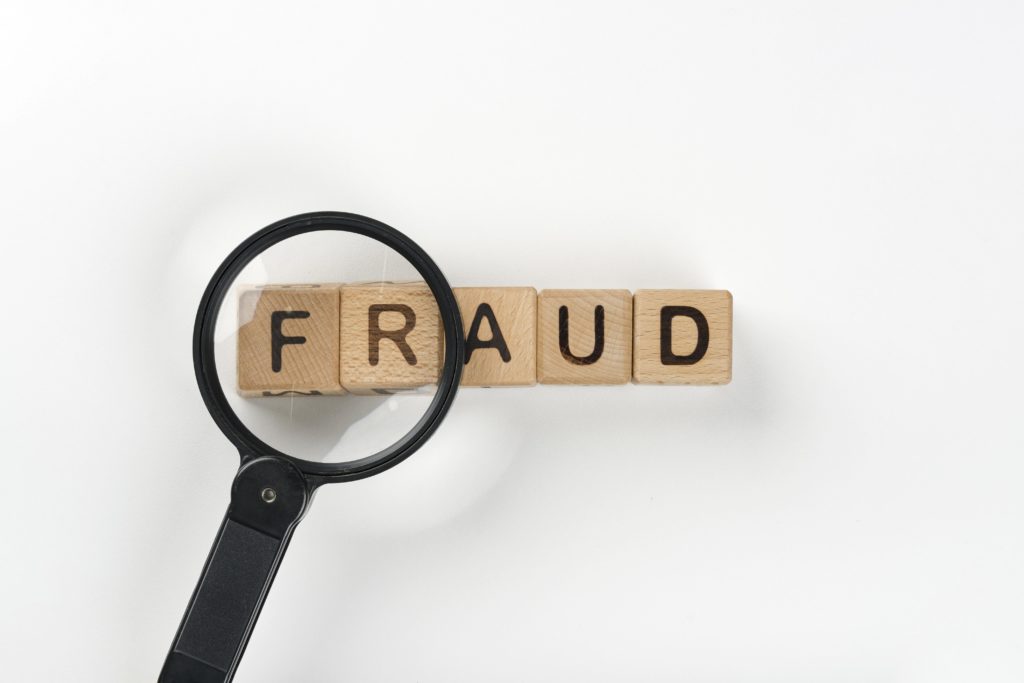The IRS has posted its annual Dirty Dozen list of tax scams for 2022. Continuing its 20 year legacy, the annual Dirty Dozen list is a way of alerting taxpayers and tax preparers of schemes and abusive arrangements.
This year, the IRS is concentrating on abusive arrangements, identity theft scams, and bogus tax avoidance schemes that taxpayers may encounter at anytime, but especially during the peak of the filing season.
Below is a listing (with a brief description) of the schemes that the IRS is highlighting this year.
Identity Theft Scams

The IRS continues to see identity thieves evolve their schemes and continue to use schemes they have used in past years. Below are some of the tax scams criminals are attempting to trick individuals into giving them their personal and financial information.
Pandemic related tax scams
Criminals are still using the COVID-19 pandemic to attempt to steal people’s money and identity with bogus e-mails, social media posts and unexpected phone calls.
Examples are:
- Economic Impact payment and tax refund scams
- Unemployment fraud leading to inaccurate taxpayer 1099-Gs
- Fake employment offers posted to social media
- Fake charities
Suspicious Communications
Criminals continue to use communications such as bogus calls, texts, emails, and posts online to either trick, surprise, or scare someone into providing sensitive personal financial information, money, or other information. This data can be used to file false tax returns and tap into financial accounts.
Email Spear Phishing
Spear phishing is an email scam that attempts to steal a tax professional’s software preparation credentials and/or install malware. This allows the criminal access to the tax professional’s computer systems to steal client data and tax preparers’ identities in order to file fraudulent tax returns for refunds.
See the following IRS News Releases for more information on identity theft related schemes.
- IR-2022-117 – IRS continues with Dirty Dozen this week, urging taxpayers to continue watching out for pandemic-related scams including theft of benefits and bogus social media posts
- IR-2022-121 – Dirty Dozen: Scammers use every trick in their communications arsenal to steal your identity, personal financial information, money and more
- IR-2022-122 – Dirty Dozen: Security Summit reiterate recent warning to tax professionals and other businesses of dangerous spear phishing attacks
Abusive Transactions
The IRS is focusing on the following four potentially abusive arrangements and Offer in Compromise mills.
Offer in Compromise (OIC) Mills
Offers in Compromise mills make outlandish claims, usually in local advertising, regarding how they can settle an individual’s tax debt for pennies on the dollar.
OIC mills are a problem all year long, but these tax scams tend to be more visible right after the filing season is over and individuals are attempting to resolve their tax issues.
Use of a Charitable Remainder Annuity Trust to Eliminate Taxable Gain
These transactions involve the transferring of appreciated property to a charitable remainder annuity trust (CRAT). The taxpayer then improperly claims a step-up in basis to the fair market value as if the property had been sold to the trust. The CRAT then sells the property but does not recognize a gain due to claiming the step-up in basis for the property.
The CRAT uses the proceeds from the sale to purchase a single premium immediate annuity and the beneficiary reports a small portion of the annuity received as income. The taxpayer treats the remaining payment as an excluded portion representing a return on investment for which no tax is due. In this tax scam situation, the taxpayer is misapplying the rules under sections 72 and 664 of the Internal Revenue Code.
Maltese (or Other Foreign) Pension Arrangements Misusing Treaty
A US taxpayer is attempting to avoid US tax by making contributions to certain foreign individual retirement arrangements in Malta (or possibly other foreign countries). They then improperly claim an exemption from US income tax on the earnings in, and distributions from, the foreign arrangement by asserting that it is a “pension fund” for US tax treaty purposes.
Puerto Rican and Other Foreign Captive Insurance
US owners of closely held entities participate in a purported insurance arrangement with a Puerto Rican, or other foreign corporation, with cell arrangements or segregated asset plans in which the US owner has a financial interest. The US owners claim a deduction for the cost of “insurance coverage”.
Monetized Installment Sales
These tax scam transactions involve the inappropriate use of the installment sale rules under section 453 by a seller who, in the year of the sale of the property, effectively receives sale proceeds through purported loans.
See the following IRS News Releases more information the above abusive schemes.
- IR-2022-113 – IRS warns taxpayers of “Dirty Dozen” tax scams for 2022.
- IR-2022-119 – IRS urges anyone having trouble paying their taxes to avoid anyone claiming they can settle tax debt for pennies on the dollar, known as OIC mills.
Bogus Tax Avoidance Strategies

The IRS is warning taxpayers to watch out for promoters peddling the following bogus tax avoidance schemes.
Concealing Assets in Offshore Accounts and Improper Reporting of Digital Assets
The IRS remains focused on stopping tax avoidance by individuals who hide assets in offshore accounts and in accounts holding cryptocurrency and other digital assets.
High-income Individuals not Filing Tax Returns
The IRS continues to focus on individuals who choose to ignore the law and not file a tax return, especially those taxpayers earning more than $100,000 a year. These individuals represent a compliance problem that continues to be a top priority for the IRS.
Abusive Syndicated Conservation Easements
Promoters of these transactions take a provision of the tax law allowing for conservation easements and twist it by using inflated appraisals of undeveloped land and partnership arrangements devoid of a legitimate business purpose. These arrangements do nothing more than game the tax system with grossly inflated tax deductions and generate high fees for the promoters.
Abusive Micro-Captive Insurance Arrangements
In abusive “micro-captive” structures, promoters, accountants, or wealth planners persuade owners of closely held entities to participate in schemes that lack many of the attributes of insurance. The coverages may “insure” implausible risks and fail to match genuine business needs or duplicate the taxpayer’s commercial coverages. The “premiums” paid on these arrangements are often excessive and are used to skirt the tax law.
See IRS News Release IR-2022-125 – Cryptocurrency, non-filing, abusive syndicated conservation easement, abusive micro-captive deals make the list for more information on the above tax avoidance strategies.
See the IRS Dirty Dozen page for a complete listing of the 2022 IRS Dirty Dozen and the lists from the past eight years.
CrossLink Professional Tax Software
CrossLink is the industry’s leading professional tax software solution for high-volume tax businesses. Built based on the needs of busy tax offices that specialize in providing their taxpayer clients with fast and accurate tax returns, CrossLink has been a trusted software solution since 1989. CrossLink’s in-depth tax calculations allow you to prepare the most complicated tax returns with confidence and ease.







